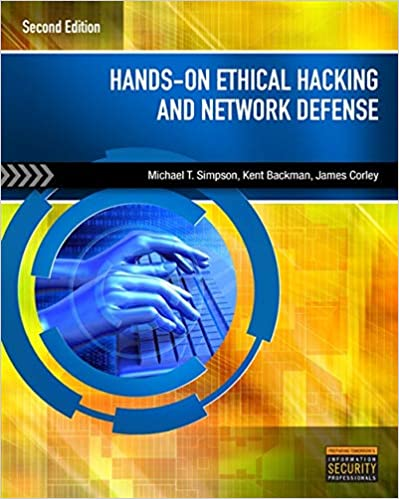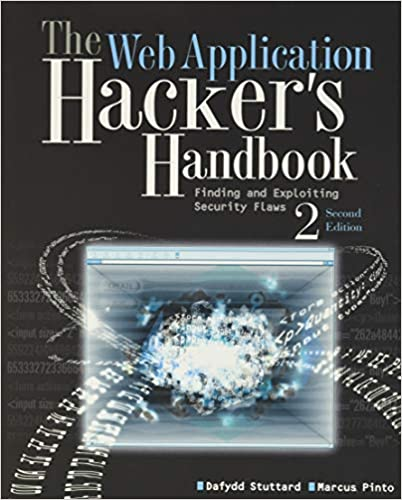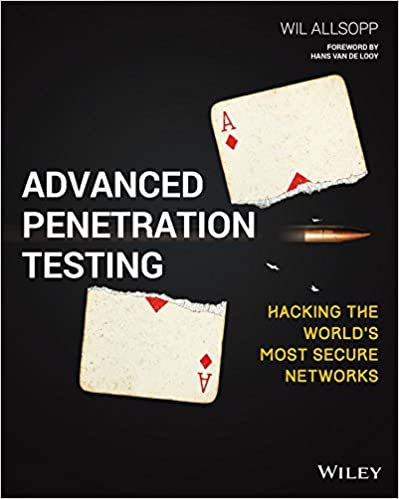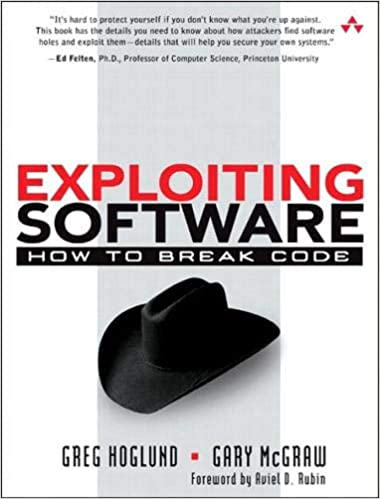The digital sphere is evolving quickly and aggressively, necessitating constant data security. Data must be protected since everything is now shared online, including personal information, bank information, friends, family, and other details. Numerous hackers search for chances to steal sensitive data for various reasons, such as conflicts of interest, national security breaches, terrorist operations, and more.
The Top 10 Books on Ethical Hacking
When it comes to studying, nothing beats books, so once you start reading about hacking, you'll be more interested in discovering and comprehending how things function. Here are the 10 best ethical hacking books to help you learn how to get into systems and identify any security vulnerabilities. Remember that if you want to hack ethically, you must first get authorization; otherwise, you are breaking the law.
1. Hands-on Ethical Hacking and Network Defense
This is a great fundamental book for new hackers, particularly first-year students with no prior knowledge of networking, security, hacking, etc. The author thoroughly explains the main principles while using clear, primary language. There is little information on implementation or approaches since it is primarily a theoretical book. This book is useful for providing an overview of all the high-level hacking principles, such as security testing, different tools, penetration testing methodologies, mobile security, and methods of network protection.

2. The Basics of Hacking and Penetration Testing - Patrick Engebretson
This will be an excellent first book for you if you want to work as a penetration tester (pen-tester). A wide variety of tools are covered in the book, including Backtrack and Kall Linux, Nmap, the Social-Engineer Toolkit, Netcat, and many more. The book has a clear format and goes through each subject in detail to ensure comprehension. The author's voice is quite engaging and amusing. It is a comprehensive guide on ethical hacking for novices.

3. The Web Application Hacker’s Handbook: Finding and Exploiting Security Flaws
One of the most well-liked and one of the best ethical hacking books is this one. It employs a productive methodology. The book provides in-depth information about website security and is useful as a reference. The author makes every effort to get you to think rather than just spoon-feeding you information. There are many real-world examples and excellent practices in the book. The book is well-structured, with the first few chapters outlining key web components and possible weaknesses and the latter chapters concentrating on hacking techniques for sessions, databases, etc.

4. Black Hat Python: Python Programming for Hackers and Pentesters
For individuals who have some programming knowledge (not necessarily Python expertise) but no hacking experience, this book is fantastic. Python is simple to learn; therefore, you may master both languages simultaneously using this book. You may sometimes consult internet resources for extra information. The majority of the book's attention is on utilizing Python 2 to create powerful hacking tools. The approaches are well covered in the book, which also provides a range of difficulties. Both for reference and for starting from scratch, you may utilize it.

5. Hacking: The Art of Exploitation by Jon Erickson
An alternative viewpoint on hacking may be found in this intermediate hacking book. Along with networking and security knowledge, the author advises you to have a strong technological basis and describes how obscure hacking tactics operate. This is a hands-on and useful book that explores numerous hacking topics while working its way through examples. The author stresses the necessity to act like a hacker, be imaginative, and explore uncharted territory. This is one of the best best ethical hacking books.

6. Gray Hat Hacking: The Ethical Hacker's Handbook, Fifth Edition 5th Edition
The book goes through all the fundamentals before moving on to some more advanced ideas. Therefore, this book will be helpful to you whether or not you are a fresher. This book is nicely written and entertaining, with a tidy, uncluttered style. Although certain topics are not addressed in great detail, networking, cybersecurity, and ethical hacking are plenty to get you started.

7. Advanced Penetration Testing: Hacking the world’s most Secure Networks
The book discusses several challenging situations and how to deal with them. This is for experts who wish to undertake pen-testing on very secure networks and think like professional hackers. The book contains several examples that make use of C, Java, JavaScript, VBA, Windows Scripting Host, Flash, etc. In these languages, the author exposes you to a variety of scanning tools and common library programs.

8. Exploiting Software: How to Break Code by Greg Hoglund and Gary R.
The book is quite technical and is written in an informed and instructive manner. It is intended for those who are somewhat familiar with reverse engineering and exploitation but wish to go further into researching black hat methods for taking advantage of software flaws. Attack patterns are emphasized in the book, which is described in length in no other source. Numerous real-world examples and case studies are provided by the author.

9. Penetration Testing – A Hands-On Introduction to Hacking
The book begins by outlining the core knowledge and abilities that each and every pentester has to have. The book includes a lot of examples, hands-on teaching using tools, and a machine-based lab, as suggested by the title. By doing this, you will be able to fully comprehend how a hacker obtains access to security systems, decrypts network keys, and creates personal exploits for all of the aforementioned activities and more.

10. The Tangled Web by Michal Zalewski
This is a complete and comprehensive handbook that is also presented in an interesting and captivating style. You may identify with many of the events described in the book as a reader since we all use the internet for different purposes. It is a sobering realization of how susceptible our data is and what vulnerabilities allow for the widespread attack. The book offers many tools and strategies as well as a solution to these issues.

Conclusion
In conclusion, there are a lot of great books about ethical hacking for people who want to learn more. There is a book on this list that can help you reach your goals, whether you are a beginner who wants to get started in the field or a professional who wants to learn more and improve their skills. The books on this page cover a wide range of topics, such as computer and network security, cybercrime, penetration testing, and more. By reading and studying these books, you can learn more about the rules and methods of ethical hacking and be better prepared to protect yourself from cyber threats and fight back against attacks. In the end, the best ethical hacking book for you will depend on your own needs and goals. However, any of the books on this list will give you useful information and insights.
Related Questions
1.How can reading ethical hacking books benefit individuals interested in cybersecurity?
Reading ethical hacking books can benefit individuals interested in cybersecurity by providing them with valuable insights into the latest hacking techniques, tools, and trends. These books can help readers better understand the mindset and tactics of hackers, which in turn can help them improve their own security measures. Additionally, reading ethical hacking books can help individuals stay up-to-date with the latest developments in the field and improve their skills as ethical hackers or cybersecurity professionals.
2.Are these ethical hacking books suitable for beginners or advanced readers?
The ethical hacking books listed above cater to both beginners and advanced readers. "The Hacker Playbook 3" and "Black Hat Python" are suitable for readers with some basic knowledge of programming and penetration testing, while "The Web Application Hacker's Handbook" and "Metasploit: The Penetration Tester's Guide" are more advanced and require a deeper understanding of cybersecurity concepts and techniques.
3.Can reading ethical hacking books replace formal education or training in cybersecurity?
Reading ethical hacking books can provide a valuable supplement to formal education or training in cybersecurity, but it cannot replace it entirely. While books can offer insights into hacking techniques and tools, they may not provide hands-on experience or practical guidance on how to apply these techniques in real-world scenarios. To become a skilled ethical hacker or cybersecurity professional, it's important to pursue formal education or training programs that provide a comprehensive understanding of cybersecurity concepts and practices.